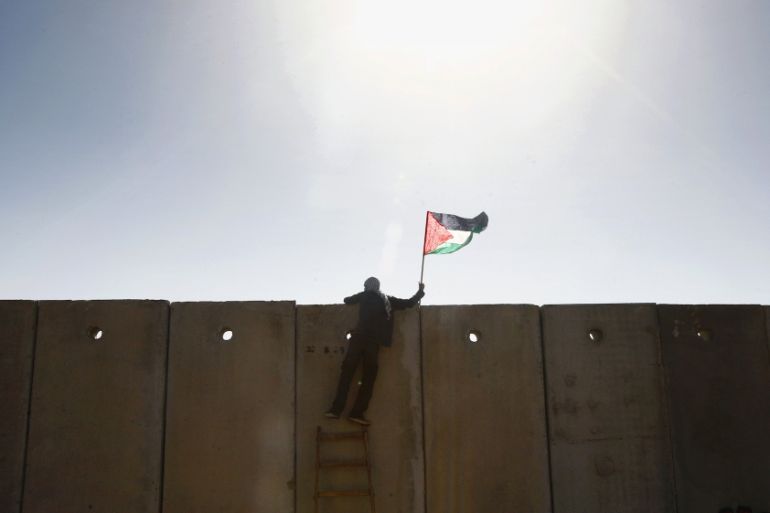The ICC is reaching out to victims of war crimes in Palestine
The Court’s surprising decision to establish outreach activities in Palestine is a welcomed step in the right direction.

In an extraordinary move, the Pre-Trial Chamber of the International Criminal Court recently issued a decision ordering its registry “to establish, as soon as practicable, a system of public information and outreach activities for the benefit of the victims and affected communities in the situation in Palestine”.
It is the first time the court issues an order for outreach at the earliest stages of the process, and before a decision has been reached by the ICC Prosecutor to open a formal investigation.
Keep reading
list of 4 itemsThe Take: Are Israeli officials under threat of ICC prosecution?
Why would Israel and its allies fear the ICC?
Israeli officials eye threat of ICC arrest warrants over war in Gaza
The decision struck fear in the Israelis, who were yet again confronted with the long reach of the court. It also surprised those closely following the work of the court, including myself. What is to be made of this decision and could it be that the court is attempting to correct its criticized approach to victims and affected communities in general, through the situation in Palestine?
The decision came at a time when state representatives gathered in The Hague to mark twenty years since the adoption of the Court’s founding treaty, the so-called Rome Statute. Those participating in the celebrations reminisced at the landmark decision to establish the first permanent international criminal institution capable, in theory, of holding world leaders to account for their role in the commission of war crimes, crimes against humanity, and genocide. The novelty of the decision by the Pre-Trial Chamber on the situation in Palestine reminds us, however, of the court’s shortcomings in engaging with victims and affected communities in a timely, continuous, and valuable manner as well as ensuring their early participation in the proceedings so that their unique views and concerns are taken into consideration from the beginning until the end.
The Rome Statute put victims at the heart of the court’s work and gave them the right to participate in the proceedings and ultimately receive reparations for harm suffered. It also gave them the right to provide information to the court. As is rightly pointed out by the Pre-Trial Chamber, in order to exercise these rights, victims must be made aware of them and the work of the court. It is in this light that the decision on information and outreach for Palestinians should be praised.
The recent decision by the Pre-Trial Chamber pushes the registry to raise awareness about the court and make it accessible to Palestinian victims at an early stage. It is also an opportunity to empower Palestinian victims and affected communities and transmit their views to The Hague. This, of course, hinges on the meaningful implementation of the decision and an unwavering victims-centred approach.
Since the adoption of the Rome Statute two decades ago, it has been clear that the court struggles to translate noble provisions into concrete action. The court often involves victims later in its proceedings, when it is difficult for them to influence the scope of the cases. The current practice is to collect approved participation forms and allow participation when arrests happen. Another valid criticism has been the lack of field presence. The ICC employs more than 900 staff members, but less than 100 of them are based in field offices located in closer proximity to some of the victims and affected communities. Due to, among other things, its limited field presence and strict security guidelines preventing court staff from travelling to certain areas, the court relies heavily on the goodwill of relatively small and often under-resourced domestic human rights organisations that are not protected from consequential violent retaliation.
The meaningful implementation of the decision on the situation in Palestine is dependent on the allocation of adequate human and financial resources to information and outreach activities. It is also dependent on a mindful engagement between the court and civil society. But most importantly, it requires that the court itself directly and immediately interacts with Palestinian victims and affected communities. The responsibility to reach out to victims and include them in the work of the court lies primarily with the organs of the court.
Israel is increasingly hostile towards international organisations, in particular, human rights bodies. Israel frequently denies entry to UN-mandated experts and deports critical human rights defenders and activists. This month Israel denied entry to Swedish peace activist Benjamin Ladraa who walked from Sweden to Palestine to bring attention to the occupation. And, at this moment, Israel seeks to enforce its decision to deport the director of Human Rights Watch.
The court must put its full weight behind a request to enter the occupied Palestinian territory and demand that it be allowed to carry out its mandate in Palestine independently and unhindered.
The views expressed in this article are the author’s own and do not necessarily reflect Al Jazeera’s editorial stance.
